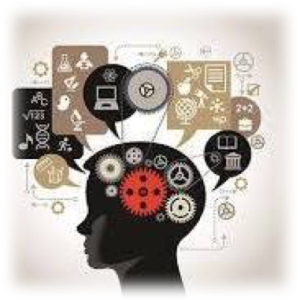
Artificial intelligence is all the buzz in the tech industry right now, which can make it feel like a passing fad. But inside Google and Microsoft and Amazon, it’s certainly not. And these companies are intent on pushing it across the rest of the tech world too.
Probably the most exciting aspect of technological trends at the moment would have to be artificial intelligence (AI for short). It has come along was from being just something sci-fi writer’s wrote about to being an integral part of the 21st century. So much so that many experts believe that by 2020 investment and spending in the area will increase by 500% and l believe them. why? i see the whole area being almost limitless to what they can achieve. It can literally fit into all aspects of life as we know at the moment. Healthcare, Agriculture and Financial Services are the obvious one where it can evolve and grow expediently. The big claim that AI makes it that once working correctly it can virtually cut out human error.
Health care – AI is proving useful in diagnosing diseases such as cancer, in some cases doing a better job than human doctors. Some startups are also using AI to speed drug discovery by helping better determine which areas of scientific research will bear more fruit. As a result, the risk of expensive Phase 3 trials which are the most expensive and time consuming are being virtually halved if not cut out.
Agriculture – AI has the potential to increase crop yields and decrease irrigation and fertilizer cost. It can also assist in the early detection of crop and livestock disease and lower labor costs associated with sorting crops after they’re harvested. The investment banks estimates that AI-based technologies such as precision fertilizer applications could improve corn yields by 70 percent by 2050.
Financial services — Money managers could use AI to help make investment decisions and help high-frequency stock traders gain an advantage over their rivals. The technology also could aid in reducing credit risk and compliance costs, which have increased by as much as 50 percent over the past few years.

Away from these obvious point there is so much more that can be achieved from AI. For robotics will allow us to address the challenges in taking care of an ageing population and allow much longer independence. It will enable drastically reducing, maybe even bringing to zero, traffic accidents and deaths. And enable disaster response for dangerous situations, for example, the nuclear meltdown at the Fukushima power plant.
In the world of artificial limbs, Blatchford are a world leading rehabilitation provider with clinical expertise in prosthetics, orthotics, special seating and wheelchairs have created the first-ever integrated lower limbs. It behaves like a human leg, and produced a platform technology that signifies the beginning of the next generation of prosthetics. this has to be looked at the next big step. Tt keeps humans moving forward and using AI regain their lifes back from tragic accidents. it also brings up the possibility of superhuman designed with exoskeletons for military and policing.
With these possibilities companies like Google, Amazon, Netflix, Facebook and Twitter but to name a few are beginning to invest heavily now. As a result, by buying up start up AI companies and head hunting the top young minds from around the world to join specific tasked teams within there organisations to try gain a competitive advantage amongst there global competitors.
The competition and rivalry is fierce here and should not be underestimated with companies willing to do whatever it takes to gain advantage. Google is now running internal classes in the art of deep learning, and Facebook offers machine learning instruction to all engineers inside the company alongside a formal program that allows employees to become full-time AI researchers. Google also has unveiled new versions of cloud services that offer image and speech recognition as well as machine-driven translation. And the company said it will soon offer a service that allows others to access to vast farms of GPU processors, the chips that are essential to running deep neural networks.
but at what cost will this come?
I think most of the world has pushed hard on this idea of knowledge workers — you should get an education, you should educate yourself and stay ahead of the changing world. That may become somewhat difficult. Why pay massive sums of money to educate and train someone when a robot could be programmed to the same job at a fraction of the cost.
It’s a sudden switch, when something becomes cheaper, when the self-driving car becomes cheaper than the human driver, immediately the whole system will flip around, and say just sell self-driving cars.
When a AI-based medical doctor becomes cheaper, why not switch all medical doctors to smart computer programs and have a few remaining human specialists for very special cases.
It will make us reevaluate human life. We can turn machines into workers. They can be labor, and that actually deeply undercuts human value. My biggest concern at the moment is that we as a society find a way of valuing people not just for the work they do.
